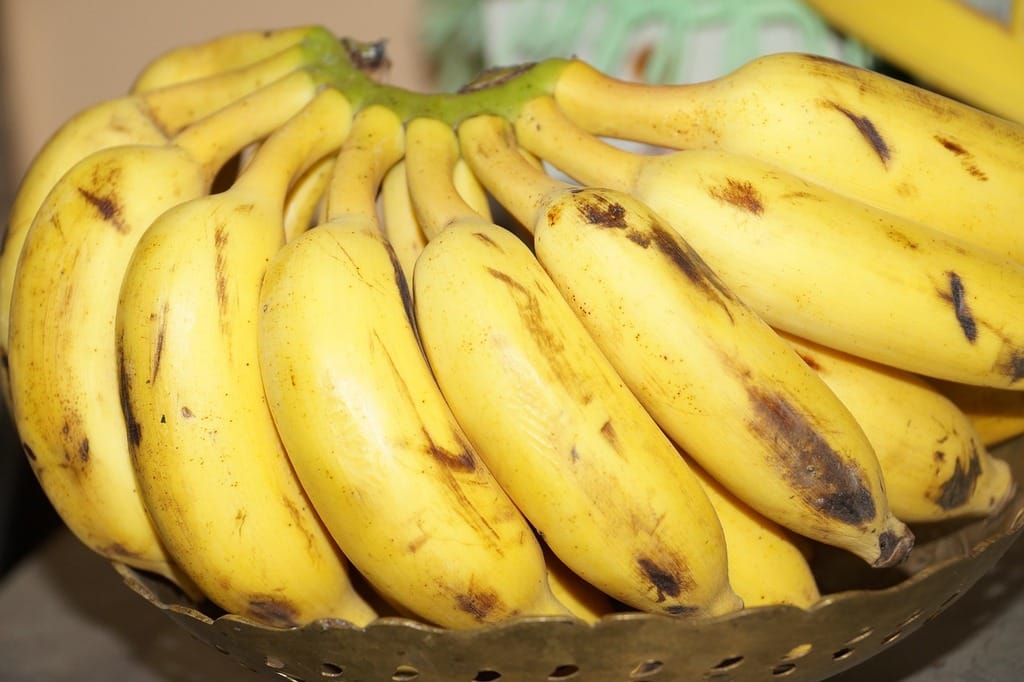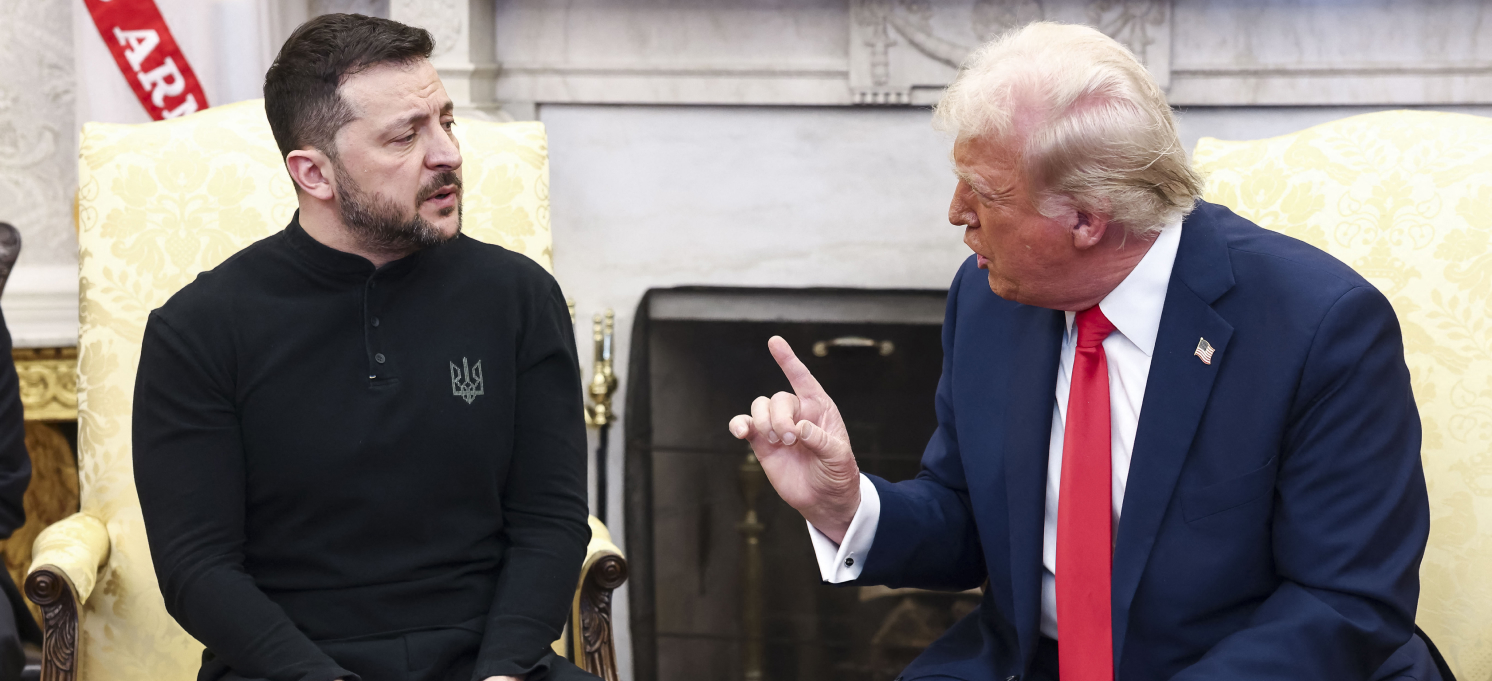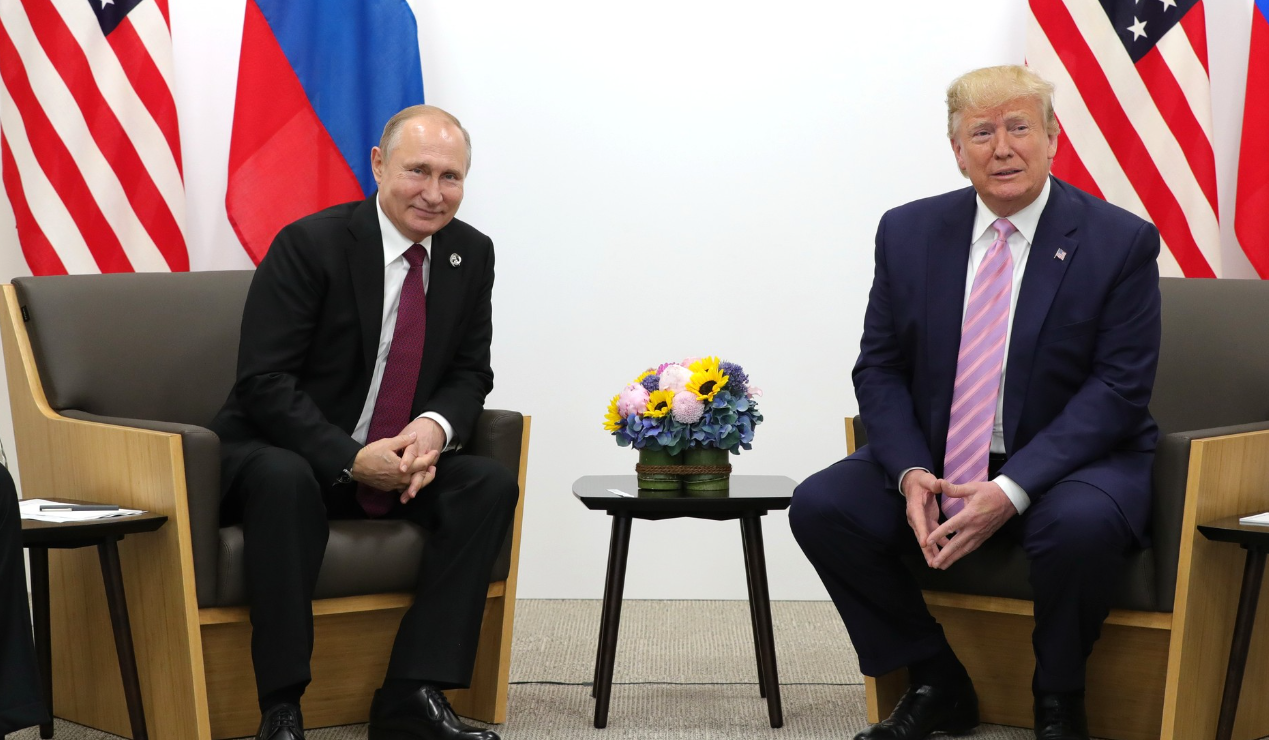
Russia’s self-inflicted banana problem
Hello! Welcome to your weekly guide to the Russian economy — written by Alexander Kolyandr and Alexandra Prokopenko and brought to you by The Bell. Our top story is about Moscow sanctioning Ecuadorian banana exports, and the knock-on effect it will have on the Russian consumer. We also look at Russia’s final GDP figures for 2023.
Russia limits Ecuador banana exports amid Ukraine arms spat
The fallout from Russia's invasion of Ukraine is even being felt on the banana market. In an attempt to punish Ecuador for allowing the transfer of Soviet-era arms to Ukraine, Russia has imposed draconian restrictions on banana imports from Ecuador, showing it is happy to damage its own economy and inflict pain on its own consumers.
What's going on?
Ecuadorian President Daniel Noboa confirmed last month that he would hand Soviet military equipment to the U.S. in return for U.S. kit worth $200 million. Although this has not been stated openly, it’s assumed the Soviet hardware will be given to Ukraine.
Ecuador has 18 Grad multiple rocket launch systems, 12 mobile Osa rocket systems, 150 anti-aircraft guns of various types, and a number of outdated Igla and Strela manpads, according to the 2023 Military Balance (an open-source assessment of military power around the globe). Although Noboa insists the equipment is inoperative, Russia quickly declared Quito's decision to be a hostile one.
A few days after the Ecuadorian announcement, Russia's food safety watchdog Rosselkhoznadzor “discovered” traces of a harmful insect in Ecuadorian bananas and barred five Ecuadorian companies from the Russian market. In total, the ban impacts about 30% of Russian banana imports from Ecuador. Rosselkhoznadzor warned that, if Ecuador fails to prevent the export of unsafe bananas, it will impose further measures.
This sort of step is typical of the trade weapons Moscow has used in political disputes with various former Soviet nations, as well as European Union countries and Turkey.
What’s the impact on Ecuador?
Russia’s retaliatory step is a big deal for Ecuador as it sells almost $700 million worth of bananas to Russia each year — a fifth of its total banana sales, or 2.5% of the country’s total exports. If Russia completely bans Ecuador's bananas, and no alternative buyer is found, it could cost the country 0.5% of its GDP.
Ecuador's banana farmers are already suffering the consequences of Russia's full-scale invasion of Ukraine. According to the UN Food Agency’s annual report on the global banana market, Ecuador has had to adapt to reduced demand, find alternatives to Russian and Ukrainian fertilizers, and pay more for transportation.
Nor would it be easy to replace Russia. There is no other market for so many bananas, Richard Salazr, the head of the Banana Exporters’ Association, said Tuesday. According to the association, 25,000 jobs rely on Ecuador’s exports to Russia.
And what’s the impact on Russia?
It appears that Moscow opted for this extreme step not only to try and derail the Ecuador-U.S.-Ukraine arms deal, but to dissuade any other countries from making such agreements. However, Russia’s response will not only impact Ecuadorian farmers.
Imported bananas, which are relatively cheap and high in calories, are among the few fruits available all year round to Russia’s poor. In the year from Nov. 2022 to Oct. 2023, bananas accounted for 21.7% of all fruit sales in Russian retail chains (in monetary terms), according to research company Nielsen. For comparison, apples made up 16.3% of all sales.
At the same time, the cost of bananas in Russia is rising fast. The latest figures show that, from the start of 2022 through Oct. 2023, banana prices shot up 75%. Overall food inflation in that period ran at less than 20%. The reasons for this rapid growth include the devaluation of the ruble, more complex logistics, and rising costs for producers. Last year, the government even considered adding bananas to an official list of socially significant goods, a step that would pave the way for price regulation.
Can Russia get its bananas elsewhere?
Russia is trying to replace Ecuadorian bananas with Indian bananas. If successful, this will mostly benefit Russian exporters who have hard-to-convert rupees stuck in India. But India has no need to do Moscow any favors. And, amid the war in Ukraine and Western sanctions, any economic dependence on Russia can quickly become a liability.
Why the world should care
Rising prices for bananas will further fuel inflation in Russia. And the nature of the consumer market for bananas suggests that the country’s least well-off will be disproportionately affected. As we have seen in previous trade disputes, Russia has no qualms about sacrificing its consumers to further its foreign policy ambitions.
Russia reports 3.6% economic growth in 2023
Russia’s State Statistics Service (Rosstat) this week published final data on the country’s economic performance last year. The headline figure of 3.6% growth was better even than President Vladimir Putin promised. Taken alongside a revision to the extent of the economic contraction in 2022 (now assessed to be -1.2%, not -2.1% as previously stated), it shows that Russia’s economy has grown as much as 2.4% in the last two years, which have been dominated by the war in Ukraine and Western sanctions.
- The numbers underline what has been said more than once – Russia has adapted to Western sanctions better than most expected.
- In short, it’s increased government spending, particularly on the military, which has saved the economy. Officially, the main contributors to growth were the manufacturing sector, trade and construction. The growth in manufacturing has been driven by the booming defense sector, while construction has been buoyed by state subsidized mortgages. The increase in trade is a reflection of rising wages, especially for those employed by state-owned companies.
- The data showed that the accumulation of fixed assets was up 19.8%, while gross fixed capital formation increased 10.5%. This means both an increase in investment, and inventories. It’s hard to say whether this is due to stockpiling, or disruption in supply chains and import difficulties.
- The economic data for December shows some signs of cooling, but there are few signs that Russia will not see economic growth again in 2024.
Why the world should care
The Russian economy is growing faster than the world average. That’s not Kremlin propaganda, it's a fact. However, this growth is being achieved at great future cost. And it’s creating structural imbalances that are likely to have serious consequences.
Figures of the week
The volume of cross-border currency transactions involving Russian individuals (as opposed to companies) fell 48.8% in 2023 to $27.8 billion, according to the Central Bank. The most popular currencies remained the same: 46.3% of these transactions were in U.S. dollars, 26.7% in euros, 7.4% in yuan, and 7.2% in yen.
Russian oil companies reduced refining volumes in January by almost 4% compared with the same period last year, newspaper Kommersant reported Tuesday. This was likely the result of both refineries being closed for repairs, and Ukrainian drone attacks.
Russia's budget deficit in January was 308 billion rubles (or 0.2% of GDP), according to the Finance Ministry. Revenue in January (2.396 trillion rubles) exceeded January 2023 by 76.6%: non-oil and gas revenues rose 84.8%, while oil and gas revenues climbed 58.7%. Spending this January was 13.2% down on January 2024.
Inflation in the week beginning Jan. 30 was 0.16%, according to Rosstat. Annual inflation accelerated slightly, to 7.27% (from 7.24% the preceding week).
The amount of Chinese yuan held in Russian banks at the end of last year amounted to the equivalent of $68.7 billion. For the first time ever, this exceeds the amount held in U.S. dollars ($64.7 billion). In other yuan records, Russian corporate lending in yuan last year more than tripled to $46.1 billion. And the share of yuan transactions on the foreign currency market in 2023 on the Moscow Exchange exceeded 50% for the first time ever.
Further reading
Russia’s Frozen Assets Present a Policy Dilemma
Russia's Attempt to Extradite Bi-2 Rock Band Reveals the Extent of Its Fantasy World
Making Attrition Work: A Viable Theory of Victory for Ukraine
In Year Three of the Ukraine War, It’s Time to Learn the Lessons of the First Two





